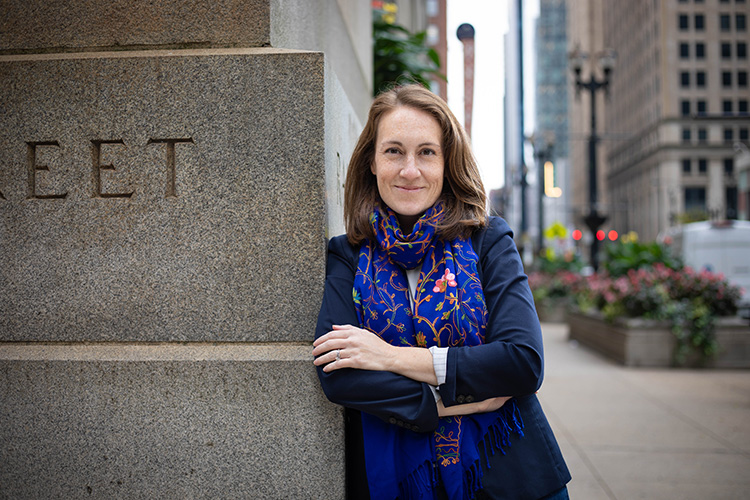Dedicated Advocacy Despite the Pandemic
Rachel Ruttenberg (LAW ’11)

Rachel Ruttenberg (LAW ’11) has served as director of policy at Heartland Alliance since she joined the staff in 2019. A Chicago-based nonprofit that works with individuals who are homeless, living in poverty, or seeking safety, it provides a comprehensive array of services in health, housing, jobs, and justice. While the how and what of her job changed when the COVID-19 pandemic uprooted life in the United States, Ruttenberg remains steadfast in her Heartland Alliance advocacy efforts.
How do you create change through advocacy?
We identify issues that people in poverty are facing or opportunities to make people’s lives better, we work with partner organizations within coalitions to develop policy solutions, and we lobby for legislative and administrative changes. The legislative calendar drives a lot of the flow of my work over a year. I came in well before the spring [2020] Illinois legislative session was set to start in January. That was nice because it let me get to know the team, start to understand our priorities, and start to connect with the Heartland Alliance programs and their subject matter leads to understand the pain points for some of our program participants and the acute challenges that folks are facing right now.
What issues have 2020 brought into clearer focus?
You can’t separate the work to help people who struggle to make ends meet and the work to end systemic racism. They’re just too intersectional. I’m thinking specifically of the awful, disparate impact of the pandemic on people of color. The pandemic has put us through a collective trauma in some ways, where there’s not just an opening for bold policy solutions that could be game-changers, but there’s an opportunity for the public consciousness to just be raised and to have increased compassion for people who face specific challenges and systemic barriers.
Are than any policy issues that could become bigger focuses moving forward?
I continue to see a lot of hope, promise, and excitement around policy that changes the game in terms of wealth in this country, and how wealth is accumulated and distributed and accessed. There’s a better understanding that there are structural and systemic barriers in place that just simply prevent people of color in the U.S. from accessing opportunities to gain assets and accumulate wealth, especially across generations. Reparations, baby bonds, and other policy solutions that center equity and attempt to close the racial wealth gap are the most exciting opportunities and conversations happening right now.